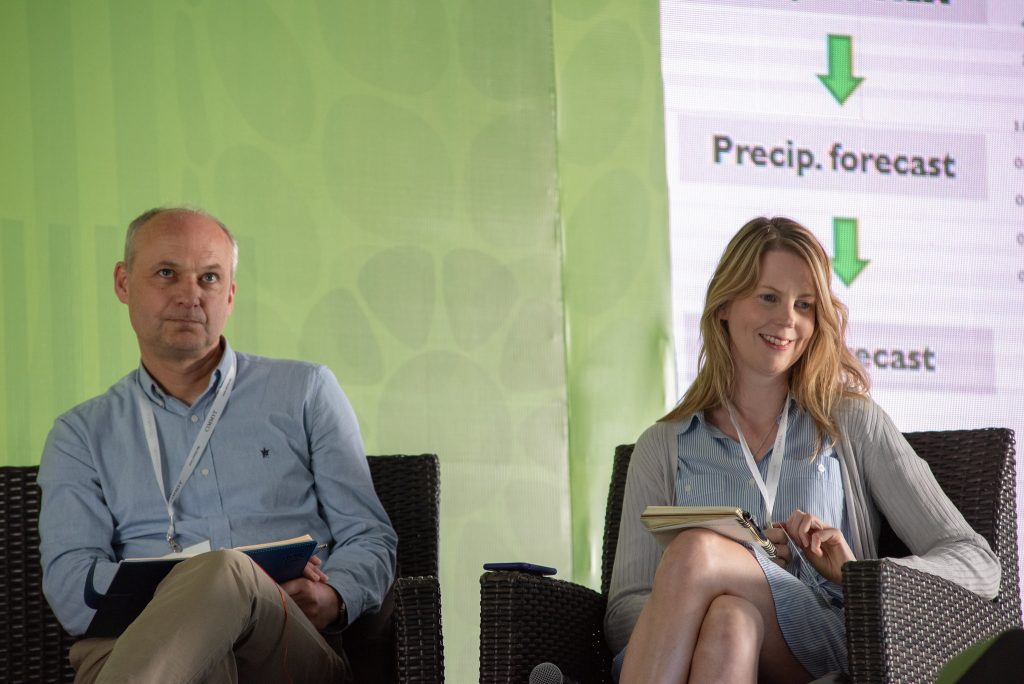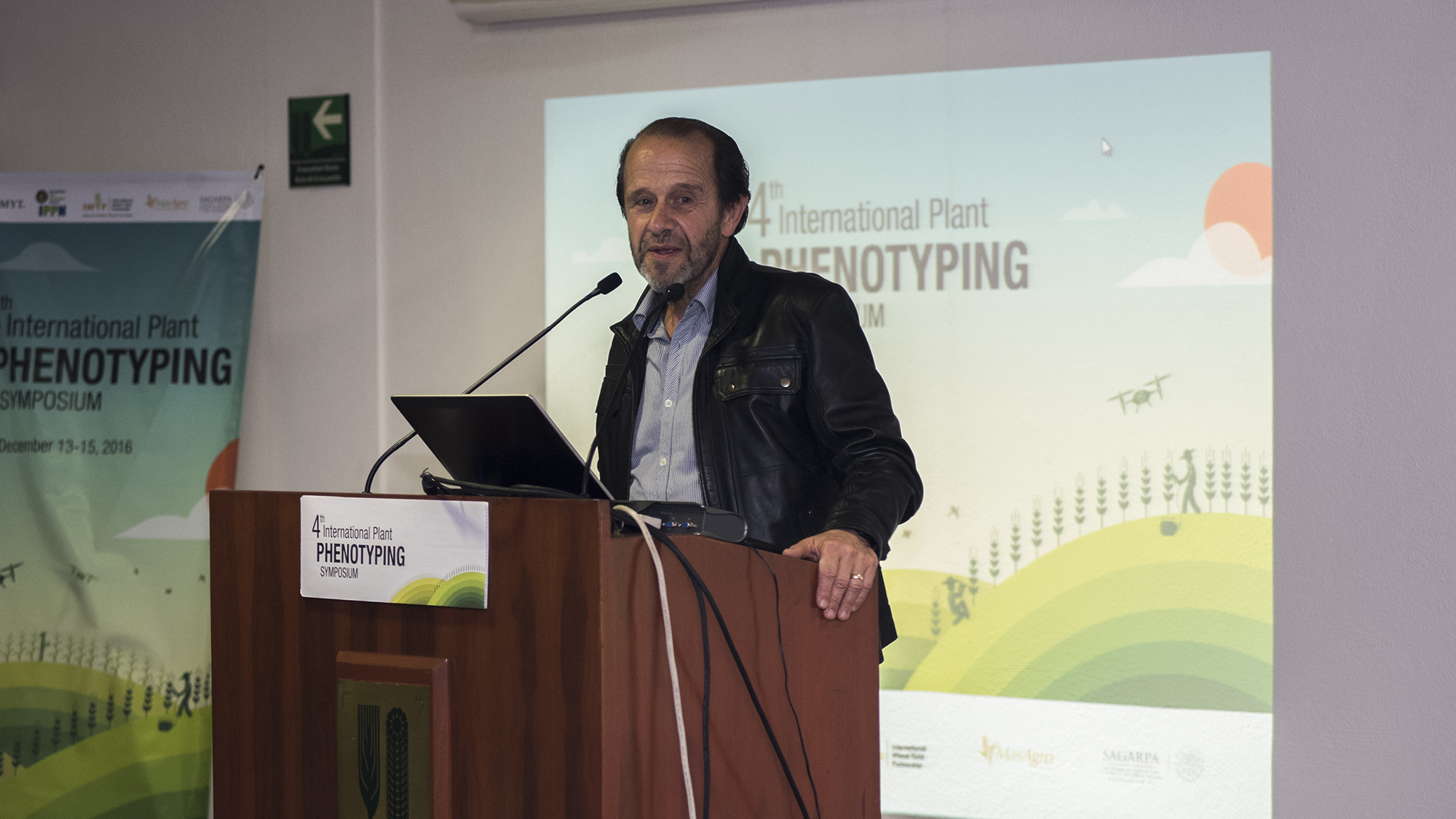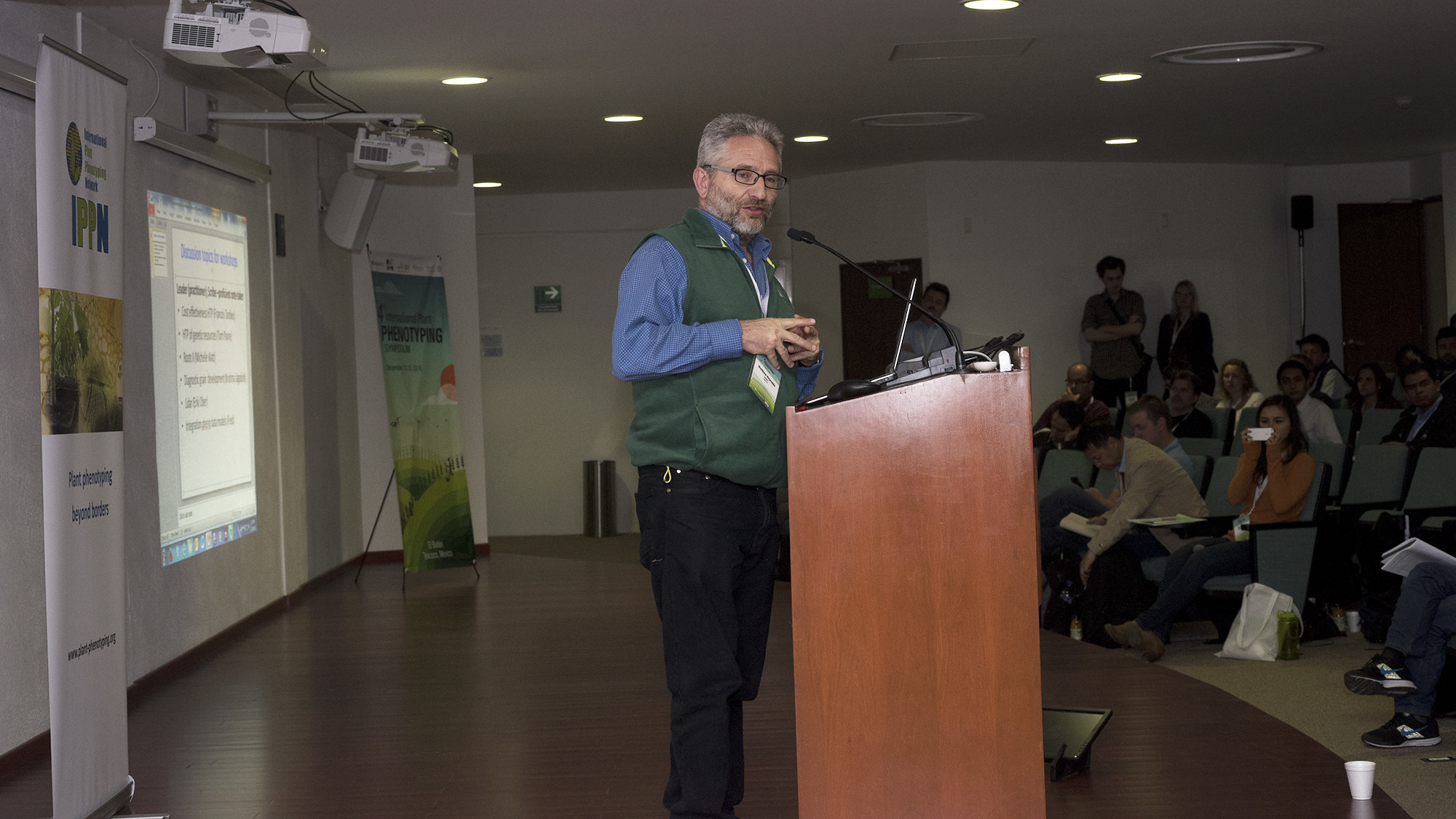Huihui Li
Huihui Li is a Senior Scientist – Quantitative Geneticist at CIMMYT in China.
Huihui Li is a Senior Scientist – Quantitative Geneticist at CIMMYT in China.
Lennin Musundire is responsible for supporting the National Agriculture Research Systems (NARS) in Africa to develop breeding improvement plans to deliver higher genetic gains targeted at smallholder farmers. These improvement plans will focus on product profiles, breeding scheme optimization, use of genotyping, automation, mechanization, appropriate breeding software and links with seed producers. Provides support to national breeding teams in African countries, implements an all-inclusive internal breeding pipeline optimization plan supported by the Excellence in Breeding platform as well as supports national partners to integrate and build breeding networks with CGIAR institutes and regional, national partners.
CIMMYT applies high quality science to develop more resilient agrifood systems. This year three scientists from CIMMYT are included in Clarivate’s 2023 Analysis of the most highly cited academic papers.

While CIMMYT’s mission does explicitly require academic publication from its scientists, “the recognition reflects extensive networking with academia, opening doors for new technologies to benefit resource-poor farmers and consumers as well as lending scientific kudos to CIMMYT and underpinning fundraising efforts,” says Distinguished Scientist and Head of Wheat Physiology, Matthew Reynolds.
Maize Physiologist Jill Cairns and collaborators spearheaded the application of high throughput phenotyping for maize-breeding in sub-Saharan Africa, which she says, “would not have been possible without involving leading academic experts like JL Araus at Barcelona University.”

Biometrician and Distinguished Scientist José Crossa has pioneered wheat genetic analysis and use of artificial intelligence to solve crop research questions. “With machine learning tools like Deep Learning, there is a golden opportunity to understand the many complex dimensions of crop adaptation, so data-driven breeding models will have the necessary precision to target complex traits,” he explains. Crossa is widely respected by leading academics in biometrics for his insights on bridging statistical theory to solve real world problems.
Reynolds has built initiatives like the Heat and Drought Wheat Improvement Consortium (HeDWIC) and the International Wheat Yield Partnership (IWYP) that transfer cutting-edge technologies—from many of the best academic institutions in the world—to application in breeding, helping to widen wheat gene pools globally.

All three scientists achieved the same recognition last year. As in 2022, Reynolds was awarded for his contribution to scientific literature in plant and animal sciences, while Cairns and Crossa were awarded for their contributions to scientific literature across several fields of research (cross fields).
Since 2001, Clarivate’s Highly Cited Researchers list has identified global research scientists and social scientists who have demonstrated significant and broad influence in their field(s) of research. It recognizes exceptional research performance demonstrated by the production of multiple papers that rank in the top 1% by citations for field and year, according to the Web of Science citation indexing service.
In 2023, the list recognizes 6,849 individuals from more than 1,300 institutions across 67 countries and regions.
Harshit Rajan is the GIS Specialist in the SAS program at CIMMYT. His role revolves around geospatial activities, primarily centered around his roles within CSISA and SIS. Within the confines of CIMMYT, his professional pursuits are firmly directed toward two critical areas: Drainage class mapping and Digital Soil Mapping, both of which are augmented by cutting-edge machine-learning techniques.
Moben Ignatius is the Agriculture Research Associate in the SAS program at CIMMYT. His role revolves around fostering sustainable agricultural practices and innovative technologies and methods that cater to Rice-Wheat cropping systems.
His previous work role extended to forging alliances with diverse organizations and governmental bodies to advocate for the expansion of these beneficial agricultural techniques. Employing meticulous monitoring, evaluation, and data-driven surveys, ensuring the successful execution and scalability of projects.
Zerihun Tadesse is an associate scientist in the Global Wheat Program based in Mexico. His research focus is on developing and implementing modern breeding strategies to accelerate genetic gain in bread wheat populations. His goal is to develop high-yielding, early maturing, disease-resistant, and nutritious bread wheat lines for large target areas in South Asia and Sub-Saharan Africa.
Dr. Aravindakshan is a Scientist in CIMMYT’s Sustainable Agrifood Systems program, specializing in adoption, scaling, and innovation systems.
He contributes to the TAFSSA initiative, focusing on scaling, extension, adoption, and monitoring of agrifood systems innovations. With a Ph.D. from Wageningen University in the Netherlands and MSc degrees from the University of Copenhagen, Denmark, and TU Dresden, Germany, he brings over two decades of interdisciplinary expertise in Innovation Systems and Natural Resource Economics. Dr. Aravindakshan has collaborated with governments, NGOs, and organizations like FAO, JICA, and WWF across South Asia, the Middle East, and Europe, contributing to multi-country projects funded by the EU, USAID, and the Bill & Melinda Gates Foundation.
Moreover, he has published high-impact journal articles aimed at guiding policy formulation in the global south.
Kabita Kunwar is the ICT and Data Analyst in the Sustainable Agrifood Systems program at CIMMYT. She specializes in data collection app administration, digital advisories, fintech, and facilitating digital finance for agribusinesses. Kabita is driving the adoption of proven technologies and advisories to benefit smallholder farmers and agribusinesses in Nepal.
Harish Gandhi is a Breeding Lead for Dryland Legumes and Cereals in CIMMYT’s Genetic Resources program in Kenya. He is a transformative plant breeding and genetics professional, with more than 15 years experience of driving genetic gains, building effective teams, and pioneering innovative research and development.
Grace Mwai is an innovative and strategic leader with more than 18 years of progressive leadership experience in international development programs. She has spearhead implementation projects of US$23M-$320M funding, while leading teams across 19 countries with more than 14 international and bilateral donors. Mwai holds a Doctor of Business Administration, Masters of Science in Organization Development, Masters of Business Administration, and is a Certified Public Accountant and Corporate Governance Trainer.
She has a keen ability to identify inefficiencies and create sustainable systems enabling consistent, on-time completion, regardless of project complexity. Her lived experience on both sides of the donor and recipient dividing lines affords her a nuanced understanding of stakeholder needs and the intricacies of donor requirements.
Carlos Alfredo Robles Zazueta is a Postdoctoral Fellow – Wheat Physiology in the Global Wheat Program at CIMMYT.
His research interests are focused in understanding the physiological basis of yield improvement by studying physiological traits such as photosynthesis, stomatal conductance, biomass accumulation, resource use efficiency, all of this using conventional and high-throughput phenotyping methods.
Lokesh Chaudhary is an agronomist with expertise in seed physiology, crop modelling, precision agriculture and GIS GNSS. He is currently learning about drone piloting, data collection and processing.
At CIMMYT, Chaudhary works on resilient climate agriculture, under which technology transfer is done. Expertise in agronomy, seed and machinery is required and used extensively. He supports in the execution of farmers participatory and on-station demonstrations/research trials on climate-resilient agricultural practices, monitors day-to-day field activities (irrigation, fertilizer, herbicide, insecticide, etc.) and conducts data collection of the farmers participatory/research trials.
Gatien Falconnier is a systems agronomist interested in the impact of sustainable agricultural intensification on food security and income, in the smallholder context of sub-Saharan Africa. His work combines on-farm and on-station experimentation, crop and farm modelling, to explore scenarios of change in farmers practices, with current and future climate.
Blessing Mhlanga is a cropping systems agronomist working under the Sustainable Agrifood Systems (SAS) program to improve the livelihoods of smallholder farmers in Eastern and Southern Africa by adapting innovative cropping systems. He obtained his PhD from the Scuola Superiore Sant’Anna in Italy in 2022. He joined CIMMYT as an intern in 2009 and has served as a consultant under different CIMMYT projects since 2016. Blessing has also co-led workpackages under some CG initiatives.
Geoffrey Muricho works for CIMMYT as a Monitoring, Evaluation and Learning Specialist based in Nairobi. Before joining CIMMYT, he was a scientist (Monitoring, Learning and Evaluation Specialist) at ICRISAT where he coordinated monitoring, learning and evaluation activities of Bill & Melinda Gates Foundation funded projects (TL III, HOPE II and AVISA) in sub-Saharan Africa and Asia.
Besides monitoring, learning and evaluation, Geoffrey is an experienced research economists with expertise in agricultural technology adoption and impact assessments using quantitative and qualitative methods. Previously, he worked as a Postdoctoral Research Fellow at International Center of Insect Physiology and Ecology (ICIPE) where he focused his research on technology adoption, gender analysis and impact assessments. Before joining ICIPE, he worked as a Research Associate with CIMMYT and ICRISAT. Geoffrey obtained his PhD (Economics) and MSc. (Agricultural Economics) from the University of Nairobi. He also holds BSc (Agr. Econ).